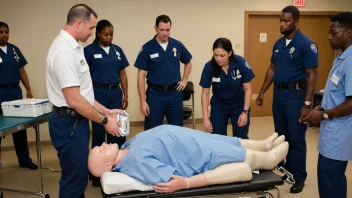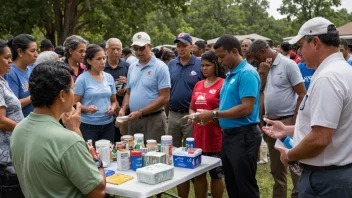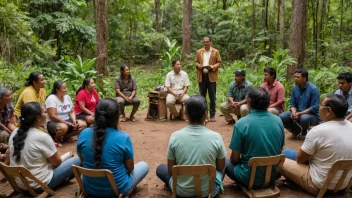In times of crisis, whether it be personal hardships, community disasters, or global challenges, many people turn to spirituality as a source of strength and resilience. Spirituality can provide a framework for understanding suffering, fostering hope, and cultivating community. This article explores the multifaceted role of spirituality in enhancing resilience during difficult times, highlighting key points where spiritual practices can make a significant difference.
1. Finding Inner Peace Through Meditation
Meditation is a powerful tool that can help individuals achieve a sense of calm and clarity in the midst of chaos. By focusing on the present moment and cultivating mindfulness, people can reduce anxiety and stress. Here are some benefits of meditation during crises:
- Reduces Stress: Regular meditation practice has been shown to lower cortisol levels, leading to decreased feelings of stress.
- Enhances Focus: Meditation improves concentration, allowing individuals to think more clearly and make better decisions.
- Promotes Emotional Health: It encourages positive emotions and helps in processing negative feelings, leading to better emotional regulation.
2. Building Community Through Shared Spiritual Practices
Spirituality often brings people together, fostering a sense of community and belonging. During times of crisis, communities can come together through shared spiritual practices, which can include:
- Group Prayer: Collective prayer can create a powerful sense of solidarity and support among individuals facing challenges.
- Spiritual Gatherings: Regular meetings for worship or discussion can strengthen bonds and provide a safe space for sharing experiences.
- Service Projects: Many spiritual communities engage in service projects, which can help alleviate the burdens of those affected by crises.
3. Spiritual Guidance in Navigating Challenges
Spiritual leaders and mentors can provide invaluable support during crises. Their guidance can help individuals navigate through tough times by offering:
- Wisdom and Perspective: Spiritual teachings often provide insights that can help individuals reframe their challenges and find meaning in suffering.
- Emotional Support: Spiritual leaders can offer counseling and support, helping individuals feel less isolated in their struggles.
- Encouragement to Seek Help: They can remind individuals that it’s okay to ask for help, whether it’s professional mental health support or community resources.
4. Cultivating Hope and Purpose
Spirituality can inspire hope and a sense of purpose, essential components for resilience. Here’s how spirituality fosters these qualities:
- Vision for the Future: Spiritual beliefs often provide a framework for understanding life’s challenges, encouraging individuals to look beyond their current struggles.
- Motivation for Action: A strong spiritual foundation can motivate people to take proactive steps in their lives and communities, fostering a sense of agency.
- Connection to a Larger Narrative: Spirituality can help individuals feel part of something greater than themselves, providing comfort and inspiration.
5. Embracing Compassion and Forgiveness
In times of crisis, feelings of anger and resentment can arise, especially when faced with injustice or hardship. Spirituality teaches the importance of compassion and forgiveness, which can be transformative during such times:
- Encouraging Empathy: Spiritual teachings often emphasize understanding others’ pain, which can promote a sense of unity and compassion.
- Letting Go of Grudges: Forgiveness can be a powerful release, allowing individuals to move forward without the burden of anger.
- Fostering Healing: Acts of kindness and compassion can foster healing, both for the giver and the receiver.
In conclusion, spirituality plays a crucial role in fostering resilience during crises. From promoting inner peace through meditation to building community connections and encouraging compassion, spiritual practices can significantly enhance individuals' ability to cope with challenges. By embracing these spiritual tools, individuals can not only navigate their own crises but also contribute to the resilience of their communities. In a world often filled with uncertainty, spirituality can offer a beacon of hope and a path toward healing.






